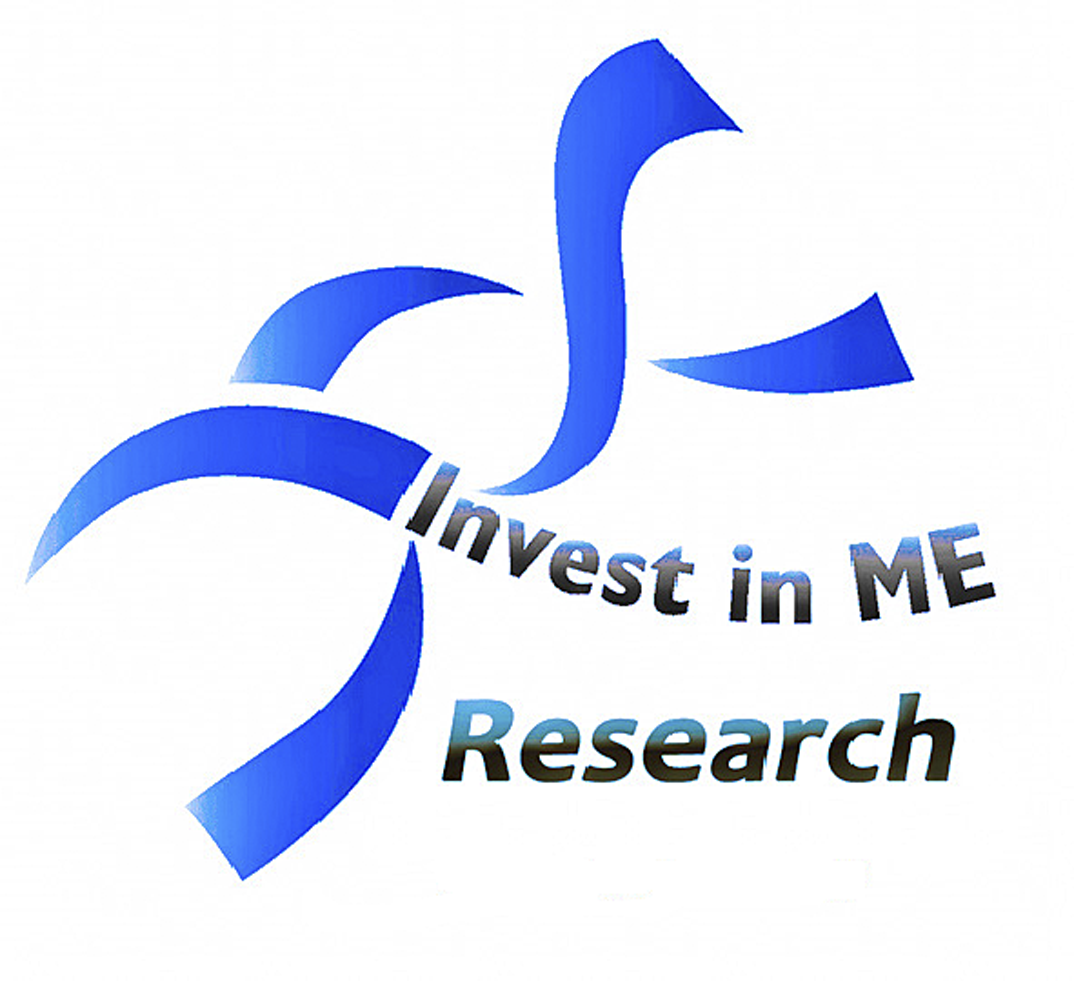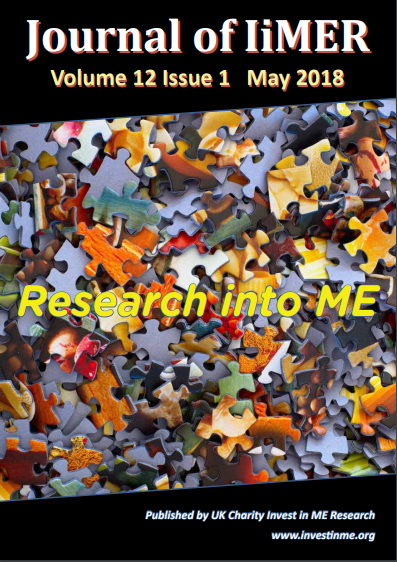Accountability and Action II
From a Norwegian petition to the Ministry of Health and Care Services
The management of the National Competence Service for CFS / ME must go!
Although the cause of ME has not been discovered yet, biomedical research shows that ME is a physical disease. Nevertheless, the management of the National Competence Service for CFS / ME maintains a biopsychosocial oriented model and merges ME with other conditions. This leads to improper treatment and poor offerings for ME patients.
The Competence Service's opinion is based on research where the patient base is a mixture of several patient groups, including those with burn-out, depression and over training syndrome. The results of these studies can not be applied to ME patients. ME patients become sicker by the treatment regime that the Competence Service recommends, and their approach to the disease is harmful to patients.
ME patients require evidence based treatment and we require that the Competence Service for CFS / ME get a new management that:
- Remains up to date with biomedical research
- Adheres to strict diagnostic criteria and does not mix ME with other conditions
- Provides accurate and up-to-date information about the disease to the health service and to help and support agencies
- takes ME patients seriously and
- acknowledges that ME is a physical disease.
ME patients and their relatives do not trust the management of the CFS / ME Competence Service.
We require that the management of the National Competence Service for CFS / ME be removed.
Background
Invest in ME Research became aware of a recent short article in forskning.no
concerning ME and the criticism of the way that the Norwegian National Competence Services for CFS/ME
(Nasjonal kompetansetjeneste for CFS/ME) was treating ME [1] .
It follows the petition (above) by ME patients and carers to publicise concerns from those affected by the National Competence Services for CFS/ME.
At the time of writing this petition had gathered almost 3000 signatures.
Another petition was recently signed by Norwegian parents of children with ME [2] that also highlighted concerns with the National Competence Services.

Invest in ME Research has always been a supporter of Norwegian initiatives for ME,
has worked with Norges ME Forening in the European ME Alliance and is a great admirer of Norwegian efforts to tackle this disease.
Norway has everything required to provide an example of how to perform research into ME, how to develop services for people with ME and how to treat
ME as the organic illness that it is.
Therefore, we are dismayed to hear of the dissatisfaction with the National Competence Services and worried over remarks in this forskning.no article that are attributed to the lead of that service.
This Norwegian National Competence Services has had an opportunity to treat ME properly and has been given resources to do just that.
It is based in a country that has seen some of the most interesting biomedical research initiatives being set up and funded
to find the cause of, and treatments for this disease – objectives that match exactly those of Invest in ME Research.
Yet, in recent times, we have seen and heard of criticism of its treatment of ME and the direction in which it has been heading.

The petition itself seems to contain reasonable requests – requesting evidence based treatment and the following -
- Keeping up to date with biomedical research
- Using strict diagnostic criteria and not mixing ME with other conditions
- Providing accurate and up-to-date information about the disease to the
health service and support agencies - taking ME patients seriously
- acknowledging that ME is a physical disease
For patients these have been long held requirements and any organisation that nowadays does not adhere to the above guidelines needs to be questioned.
Yet the article seems to illustrate much of the stale thinking that has pervaded the UK landscape regarding ME.
The article states -
“In short, the battle is about whether chronic fatigue syndrome ( CFS in English ) or ME ( myalgic encephalopathy (sic) ) is a mental illness, or physical disease, or both - a psychosomatic disease.”
It is correct – there has been, and continues to be a battle. However, patients already know the disease is of an organic nature.
What patients are concerned about is getting proper treatment for their condition and this means getting proper research into the disease - and treating it properly.
What patients have experienced for a generation is the manipulation of their lives by powerful BPS influences, attached to insurance companies and other vested interests, who seemingly care little for patients and are intent only in maintaining influence and power and careers, based on ignorance and self-interest and progressing their fundamentalist dogma.
This has been apparent in UK for so long that it is surprising that a well educated country such as Norway is even debating this issue.
If the National Competence Service for CFS / ME “believes that the disease is probably linked to both body and soul” and that “it is not possible to distinguish strictly between psyche and soma” then they are already doing a disservice to ME patients.
A competence service such as the National Competence Services must not try to cover everyone – it needs to treat ME if that is the
basis for its existence.
The main concern for any patient is to treat the underlying disease.
If comorbidities exist then they need to be dealt with in their own right.
To do otherwise is allowing lives to be wasted, to be sacrificed just for career ambitions and vested interests.
We, as a charity concerned with finding, funding and facilitating biomedical research into ME in order to find the cause(s) and treatment(s) for the disease, care nothing for whether criticism comes from “both sides”.
The role of the National Competence Services should be clear and patients then have the right to decide if that remit is being fulfilled or not,
and if they choose to use the service or demand a service that truly reflects their disease.
The National Competence Services needs to fulfill the role that ME patients believe it ought to be fulfilling.

Professor Ola Didrik Saugstad - based in Oslo - wrote an article for the charity’s recent Conference Journal [3] that was published
at the time of the 13th International ME Conference in London [4].
The Journal article pulls apart the real issues with these continued claims of harassment by patients and exposes the
real reasons why a determined and intractable biopsychosocial (BPS) lobby continues to have unaccountable influence
on patients’ lives in Norway -
"The psychosomatic ME wing had previously given the impression that they often are harassed by aggressive patients and relatives. They have also spread the information that those who support biomedical findings are afraid of new results.
The debate demonstrated that the opposite is the case.
The psychosomatic lobby’s reaction to new biomedical information was by resorting to personal and emotional attacks on us who had a different view.
Their disrespect for the patients they are supposed to serve shocked many of the neutral bystanders.
The debate was probably initiated due to the psychosomatic wing rapidly losing ground after the publication of the IOM report, the new emphasis on biomedical ME research by NIH and also the Norwegian Research Council, the CDC’s change in attitude to CBT, and the reanalysis of the PACE study showing minimal if any effect of CBT.
Several of the psychosomatic supporters had invested their prestige and based their whole career on findings that supported their view.
I understand it must be painful to see how the basis of their theory quickly eroded”
Indeed.
This is a similar story to that which has plagued the lives of UK patients – where successive governments, health departments, medical research councils and even some charities have been influenced by this evil that is the BPS theology.
There is a great deal of international concern regarding the lack of an evidence base for CBT and GET for ME. The US CDC have removed these recommendations from their website and the US Agency for Healthcare Research and Quality (AHRQ) has downgraded the evidence for these therapies due to the criteria being used for CBT and GET research [5].
The Finnish Valvira agency has also removed CBT and GET as recommendations [6].
The US Institute of Medicine (IOM) report that was published in 2015 [7] reviewed all the ME/CFS research literature and described the intolerance of any form of exertion (physical or mental) by people with ME. The IOM report was a major indictment of negligent MRC/NIH/CDC policy, highlighting the way that research, treatment, and information about ME have been misrepresented over the last generation by false funding policies, flawed research and vested interests.

As to this ubiquitous and self-serving term “multi-disciplinary” - this has usually just been masking a psychiatrist-led management of ME patients - even the most recent view of CBT and involvement of psychiatry for ME patients determines that -
“claims of efficacy of multi disciplinary rehabilitation treatment and cognitive behaviour therapy for chronic fatigue syndrome/myalgic encephalomyelitis are misleading and not justified by their results.” [8]

One has to choose how this disease is going to be treated.
For many years Invest in ME Research has commented [9] that it is impossible to marry the views of those who believe
in the deconditioning/behavioural and wrong illness belief model of ME with those from the biomedical side.
The failed PACE Trial has demonstrably proven that the behavioural view of ME cannot deliver and should not continue to command more funding.
We have long believed there is a clear case to be made for segregating the biomedical from the psychosocial that could then settle on the correct taxonomy for this disease that currently remains, to us, as myalgic encephalomyelitis.
It would seem quite meaningless to base a research and treatment strategy on the failed policies and directions of the past - which have served patients so poorly and caused such suffering [10].
As in other countries, and with other national organisations, the Norwegian National Competence Services has had ample time to
understand the true nature of ME.
They have
been invited to our biomedical research colloquia and attended some of our public conferences, in the past –
both of which have consistently displayed the world’s
latest biomedical research into ME.
If, despite this, nothing has been learnt then we will not waste further time and resources attempting to help.
The National Competence Services'' approach has been criticised forcefully by ME patients and carers.
That should be enough for a review to be taken.
The views of businesses, self-interest groups and careerists count for nothing in this debate.

The salient point in the petition that all should consider is this -
ME-pasienter og deres pårørende har ikke tillit til ledelsen i Kompetansetjenesten for CFS/ME.
(ME patients and their relatives do not trust the management of the CFS / ME Competence Service).
That in itself is enough to raise concerns in the health department and needs action – not further debate.
Patients do not complain if they are receiving correct treatment.
We are used to apathetic government health departments and corrupted research councils that seem disinterested in, incapable of listening. We cannot accept that those responsible for directly treating patients are incapable of learning.
The evil that is the biopsychosocial (BPS) theology needs to be removed from the lives of people with ME – completely removed.
It simply has no place in treating this disease.
The forskning.no article and the comments in the article should resonate with patients in the UK especially when they are being asked to believe that some organisations have switched 180 degrees to suddenly support biomedical research - after a generation of cooperating and supporting BPS protagonists, and their media centre accomplices.
There is no need for compromise with regard to people’s lives.
For ME patients there is no need to compromise, no need to accept poor advice or flawed and harmful
treatments just to satisfy health services which are increasingly based on BPS-influenced soundbite healthcare policies
aimed at saving money but not lives, or on false beliefs about ME.
There is no reason for ME patients continually to give second chances to failing organisations and disingenuous individuals.
By doing this patients will just get more of the same.
We have seen this all too often in the UK.
Norway should not be making the same mistake.
If an organisation, or department, or an individual is failing people with ME then they need to be excluded from any influence with regard to ME.
In 2018 we have lost a number of people with ME – some good friends – who have been ill served by governments and health departments and funding bodies and some charities.
Lives lost due to the apathy and systemic ignorance of healthcare systems and the manipulation by a minority of vested interests.
It is not inappropriate for patients to demand a service that helps them and which does not bury them.
It is offensive to read of an organisation that states that they are “able to keep the balance (between those who believe in the organic nature of ME and those who believe in the behavioural approach)”
We do not need a balance.
We do not want beliefs that the disease is “probably linked to both body and soul”
We want proper services that treat this disease for what it is.
We want research which aims to uncover the cause of ME and which will then enable treatments to be developed.
For any Competence Service to continue this charade of treating ME as of both body and soul makes them complicit in the abuse of patients and accountable for future litigation that may occur when patients have been seen to be harmed.
As we alluded, we do not believe in giving organisations or individuals continual second chances when they have so clearly failed.
If they have failed repeatedly then they deserve no trust.
However, in Norway's case there is the infrastructure for ME to do things differently, to do things well - to do things better.
Norwegian patients deserve better - and it may not be too late to change.
As the Norwegian proverb says -
Den beste tiden å plante et tre er for 20 år siden, den nest beste tiden er nå.


References
References for parliamentary debates, articles and reviews of the establishment policies toward ME
- 1 https://forskning.no/kronisk-utmattelsessyndrom-me/trist-at-me-aktivister-gar-i-skyttergravene/1229605
- 2 https://fryvil.files.wordpress.com/2018/03/sendtfellesbrev_evalueringkomptjcfsme_anonym.pdf
- 3 http://publizr.com/investinmeresearch/journal-of-iimer-vol-12-issue-1?html=true#/36/
- 4 http://www.investinme.eu/IIMEC13.shtml
- 5 https://www.investinme.org/Status-of-ME-References.shtml#27
- 6 https://www.investinme.org/Status-of-ME-References.shtml#44
- 7 https://www.ncbi.nlm.nih.gov/pubmed/25695122
- 8 https://www.investinme.org/Status-of-ME-References.shtml#49
- 9 https://www.investinme.org/IIME-Newslet-1304-01.shtml
- 10 Status of Research, Treatment and Perception of Myalgic Encephalomyelitis 2018
Multidisciplinary rehabilitation treatment is not effective for myalgic encephalomyelitis/chronic fatigue syndrome.
A review of the FatiGo trial http://journals.sagepub.com/doi/10.1177/2055102918792648
https://www.investinme.org/IIMER-Newslet-1806-01.shtml



